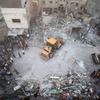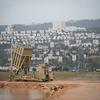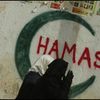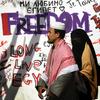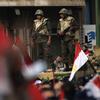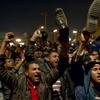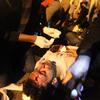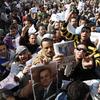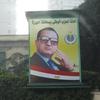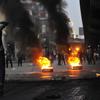Rashid Khalidi appears in the following:
The Deep Divisions of the Israeli-Palestinian Conflict
Thursday, July 17, 2014
Is there Hope for Middle East Peace in Obama's Second Term?
Thursday, March 21, 2013
U.S. in the Peace Process
Monday, March 18, 2013
With President Obama headed to Israel later this week, Rashid Khalidi, Modern Arab studies professor at Columbia University and author of Brokers of Deceit: How the U.S. Has Undermined Peace in the Middle East, talks about the breakdown in the peace process and his view that the U.S. has historically favored Israel in negotiations.
→EVENTS: Monday, April 1st; 7:30-9:30 p.m. Columbia University/Middle East Institute 606 West 122nd Street, Suite 301, Third Floor New York, NY
Tuesday, April 2; 6:00 p.m. International Peace Institute/ Middle East Program 777 United Nations Plaza New York NY
Hamas in the Gaza Strip
Monday, November 19, 2012
What to Expect From Egyptian Elections
Wednesday, March 23, 2011
Egyptians approved a referendum on constitutional changes over the weekend and ushered in a new era in the country, which will begin with parliamentary and presidential elections. The old ruling party and the Muslim Brotherhood seem to have the advantage heading into elections, but that could all change in an instant.
Egypt's Journey Towards Democracy
Monday, February 14, 2011
The will of the people of Egypt prevailed with the resignation of President Hosni Mubarak on Friday. In the wake of his departure the Egyptian military is taking control of the government, with elections to be held in six months. The military dissolved parliament and suspended the constitution. As much as Mubarak's departure is a welcome sight for protesters, there is a growing concern about the military's role in the transition. At the same time, there are longstanding problems that the interim government will have to solve, including ongoing labor strikes, poverty and a tradition of corruption.
Mubarak Defies Calls for Ouster
Friday, February 11, 2011
A massive crowd has filled the streets of Cairo on day 18 of Egypt's uprising. Thursday night, President Hosni Mubarak announced that he has no intentions of leaving office sparking rage among the crowds of demonstrators. For an analysis of what happens now is Rashid Khalidi, Edward Said professor of Modern Arab Studies at Columbia University, author of “Sowing Crisis: The Cold War and American Dominance in the Middle East” and “Palestinian Identity.”
Violence Erupts in Egyptian Protests
Thursday, February 03, 2011
After days of relatively peaceful demonstrations, a new voice has emerged in the Egypt as pro-Mubarak supporters took to the streets of Cairo yesterday. With Mubarak's supporters came the introduction of rocks, clubs, stones, knives and Molotov cocktails. The attacks did not come from the military, the disputes occurred between the two rivaling sides.
Clashes Break Out in Tahrir Square
Wednesday, February 02, 2011
Clashes have broken out in Cairo's Tahrir Square between Pro-democracy and Pro-Mubarak demonstrators. The pro-Mubarak supporters that have taken to the streets are "incredibly aggressive" says New York Times columnist, Nicholas Kristof. There are questions as to whether they were organized and sent into the streets to incite violence.
How President Mubarak May Cling to Power
Monday, January 31, 2011
History is unfolding in Egypt, as almost a week of popular protests threatens President Hosni Mubarak’s authoritarian regime. Some analysts say his regime is now in terminal decline. But Prof. Rashid Khalidi is warning that the president may still resort to violence to maintain power.
Protests Continue in Egypt
Friday, January 28, 2011
Despite attempts to blog social media sites, pro-democracy demonstrations continue in Egypt. How is the activism spreading through Cairo and greater Egypt different from that in Tunisia in recent weeks, or Yemen in recent days? Joining us with analysis of the day's events in Egypt is Rashid Khalidi, Edward Said professor of Modern Arab Studies at Columbia University.
US Policy and the Middle East Protests
Friday, January 28, 2011
Rashid Khalidi, Edward Said professor of Modern Arab Studies at Columbia University examines how U.S. policy has affected and may continue to affect democracy in the Middle East. He looks at the history of democracy in the Middle East from the invasion of Iraq, which he says, "set back the cause of democracy in the Arab world" to today's protests.
The Dialogue Project
Friday, June 21, 2002
Between early spring and late fall of 1948, Arab Palestine was radically transformed. At the beginning of that year, Arabs constituted over two thirds of the population of the country, and were a majority in fifteen of the country’s sixteen sub-districts. Beyond this, Arabs owned nearly 90% of Palestine’s privately ...
